There is something about the name “synthetic marijuana” that sounds safe. If traditional marijuana is potentially dangerous with risk for abuse, not to mention illegal, certainly the synthetic should be the healthy or at least harmless alternative, right? Not so fast. Read on to educate yourself about synthetic marijuana side effects and dangers.
What Is Synthetic Marijuana?
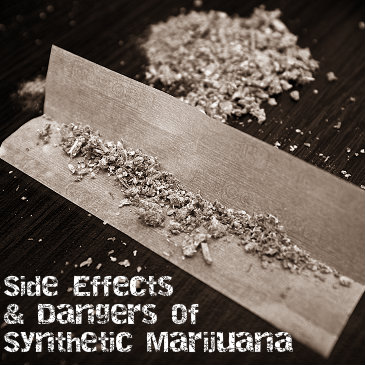 Synthetic marijuana is one substance from a family of what are known as “designer drugs.” Instead of marijuana in its natural plant form, this is a lab-created product intended to reproduce the high associated with marijuana. By creating a synthetic form of marijuana, producers, dealers and users believed they had landed on a product that would escape government sanction as well as urinalysis.
Synthetic marijuana is one substance from a family of what are known as “designer drugs.” Instead of marijuana in its natural plant form, this is a lab-created product intended to reproduce the high associated with marijuana. By creating a synthetic form of marijuana, producers, dealers and users believed they had landed on a product that would escape government sanction as well as urinalysis.
Known as K2 and spice, synthetic marijuana contains natural herbs that have been sprayed with a cannabinoid substance. While the pot-like high that the drug produces is due to the effect on the body of the same kinds of chemicals found in natural THC, it is not the same. And it is certainly not safer.
Side Effects And Dangers Of Synthetic Marijuana
The effects of synthetic marijuana will, to some degree, mimic traditional marijuana, but with some unique and often unintended consequences. For reasons not completely understood, the effect of smoking marijuana in its natural leaf form is distinct from smoking herbs sprayed with the chemicals contained within marijuana. This has led producers, users and scientists to conclude that there is more to the high and effect of traditional marijuana than the cannibinoids present in THC.
There are several synthetic marijuana dangers that users and potential users are often unaware of. Many individuals will use the drug expecting the results they are accustomed to with traditional marijuana. But with synthetic marijuana, the high is often more potent and completely unpredictable.
The side effects and dangers of synthetic marijuana that many do not anticipate, and that are rarely associated with the use of traditional marijuana, may include:
- various forms of psychosis
- hypertension
- seizures
- convulsions
- heart attack
- stroke
- blindness
- death
even in users who are young and in otherwise good health.
Synthetic weed also carries risk because of the mystery that surrounds its composition. The blend is not proprietary and each blend that a user obtains may contain any mix of unknown chemicals in unknown quantities, producing vastly different results from one high to the next. It is also especially difficult for medical professionals to treat overdoses and adverse effects given that the chemicals contained within the mixture the patient has taken may be unknown and unpredictable.
Synthetic marijuana is not a safe product and its use carries great risk. If you or someone you know struggles with addiction to synthetic marijuana or you are concerned about your use, do not delay in seeking help. Synthetic marijuana is not a harmless, legal substitute for an illegal drug; it carries dangers and side effects that may be far more severe than the drug it was designed to mimic. Withdrawal symptoms can also be powerful and unanticipated and for this reason it is recommended that users and addicts seek the care and supervision of a medical professional and/or a drug rehabilitation treatment program to safely get off and stay off synthetic marijuana.
Find Out How Synthetic Marijuana Use Is Rising Among Troops
You’re married to the life of the party. You probably have a lot of fun with him. He loves going out with friends and entertains everyone with funny stories and goofy antics. Everyone loves him, right? But you see him the next day, worn out, hung over, unable to remember all the details of the previous night. Your husband or partner is paying a high price for his social status. Being the fun one is great, but if it is forced through the veil of drunkenness, he may have a serious problem with alcohol.
What Is An Alcoholic?
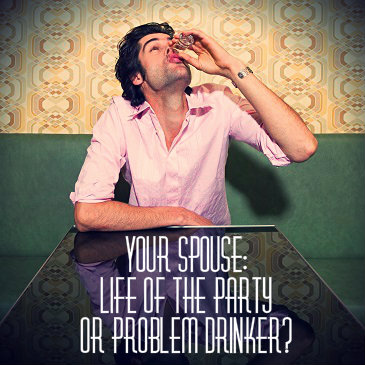 The idea of your spouse as an alcoholic is scary. The odds are he isn’t one, but it is worth educating yourself about alcoholism if you suspect he drinks too much. Alcoholism, or alcohol dependence, is a true addiction and a serious disease. It takes a lot of drinking over a long period of time to become an alcoholic. If your husband binges and regrets it on weekends, he may not be an alcoholic — yet.
The idea of your spouse as an alcoholic is scary. The odds are he isn’t one, but it is worth educating yourself about alcoholism if you suspect he drinks too much. Alcoholism, or alcohol dependence, is a true addiction and a serious disease. It takes a lot of drinking over a long period of time to become an alcoholic. If your husband binges and regrets it on weekends, he may not be an alcoholic — yet.
One of the most characteristic attributes of alcohol addiction is the presence of withdrawal symptoms. These are real, physical symptoms that result when an alcoholic stops drinking. They include tremors, anxiety, nausea, sweating, insomnia, headaches, depression and fatigue. Alcoholics severely crave alcohol to make these symptoms go away.
What Is A Problem Drinker?
While your husband may not be an alcoholic, it does not mean that he doesn’t have a problem at all. He could be a problem drinker or an almost alcoholic. Problem drinking can often look very much like being the life of the party. A problem drinker may also be that tired working mom who needs a couple glasses of wine to relax at the end of the day, but then can’t sleep well or loses her cool with the kids. A problem drinker may be someone who has symptoms of depression and drinks to feel better instead of getting help.
Any type of drinking that causes problems is problem drinking. Your husband has fun at parties and may never drive home afterward, but the next day is shot because of his hangover. He regrets the fact that he started a stupid argument with you while he was drunk. You ask him to slow down his drinking at parties and he won’t do it. Your relationship gets to be tense as a result. These are all problems caused by his behavior.
Should I Ask My Spouse To Stop Drinking?
If you have determined that your husband is indeed a problem drinker, it’s time to sit him down for a talk. Understand that he will probably be defensive so approach the topic carefully. Do not bring up the idea of alcoholism and even avoid the term problem drinker if you think that will help. Lead with how his drinking makes you feel and how you fear it will damage your relationship in the future. Discuss how much better he will feel in the morning without a hangover.
His counter arguments are likely to be that he only drinks on the weekends to de-stress or that he drinks only socially and that it isn’t a big deal. Remind him of how he feels the next day, of the regrets he usually expresses and emphasize that his drunkenness impacts you. Tell him that you hope he will slow down, but not that you need him to quit drinking altogether. Suggest that you skip one party and do something together instead to strengthen your relationship. By being honest with him you can begin to address and correct the problems that his drinking is causing.
If his drinking gets worse, it may need to come down to a professional intervention. Call us now for intervention help. You and your partner’s relationship and physical/mental health are worth it!
Alcoholic hepatitis is a serious and potentially deadly liver ailment triggered by prolonged, excessive alcohol intake. It constitutes one form of a larger condition called alcohol-related liver disease. In a study published in May/June 2014 in the journal Alcohol and Alcoholism, researchers from two U.S. universities explored the potential usefulness of a medication called baclofen in easing the effects of alcoholic hepatitis in people affected by alcoholism. This medication, originally developed to treat certain types of muscle spasms, has already been shown to help people receiving treatment for alcoholism reduce the intensity of their cravings.
Alcoholic Hepatitis
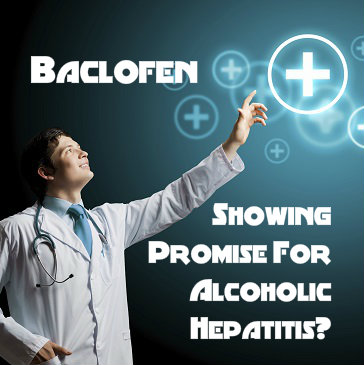 Hepatitis is the generic medical term for any disease mechanism that results in inflammation inside the liver, the body’s primary organ for doing such things as processing toxins and regulating cholesterol levels. Whenever you drink alcohol, a substance essentially poisonous to humans, your liver must process it and break it down so you can avoid any harmful effects.
Hepatitis is the generic medical term for any disease mechanism that results in inflammation inside the liver, the body’s primary organ for doing such things as processing toxins and regulating cholesterol levels. Whenever you drink alcohol, a substance essentially poisonous to humans, your liver must process it and break it down so you can avoid any harmful effects.
Unfortunately, the liver breaks down alcohol relatively slowly and you can easily overwhelm its capacity for detoxification. A person who regularly consumes excessive amounts of alcohol is at risk for one or more progressively damaging changes in his or her liver function.
The first of these changes, called alcoholic fatty liver disease, occurs when the liver starts to produce an abnormally large amount of fat inside its individual cells. Alcoholic hepatitis sets in after alcoholic fatty liver disease and produces symptoms such as jaundice, declining appetite, pain in the abdominal region, nausea and vomiting. The third stage of damaging change, called alcoholic cirrhosis, involves a permanent, disruptive buildup of scar tissue inside the liver.
As many as one-third of all people who habitually consume excessive amounts of alcohol will develop alcoholic hepatitis, the American Liver Foundation reports. The inflammation associated with the condition can have a negative impact on liver function that ranges from mild to severe. People with relatively mild forms of alcoholic hepatitis can recover their liver function if they stop drinking. However, people with relatively severe forms of the condition can experience rapid declines in liver health that lead to a cessation of function (i.e., liver failure). In turn, a person with liver failure can easily die.
Baclofen
Doctors traditionally prescribe baclofen for people experiencing muscle spasms stemming from either certain diseases that damage the spinal cord or the degenerative autoimmune disorder multiple sclerosis. The medication achieves its therapeutic effects in this context by slowing down the spinal cord’s rate of nerve cell interaction. Over the last few years, doctors have started using baclofen as an off-label treatment for the drinking cravings that typically arise during alcoholism recovery. If left unaddressed, these cravings can easily derail an attempt at establishing or maintaining sobriety. In 2012, researchers from France and Italy published the results of a study that confirmed the usefulness of baclofen in reducing the intensity of alcohol cravings.
Baclofen’s Usefulness In Alcoholic Hepatitis Treatment
In the study published in Alcohol and Alcoholism, researchers from Loma Linda University and UCLA used a small-scale investigation of 40 people to test baclofen as a treatment for alcoholic hepatitis. All of the study participants were affected by alcoholism; some of them had both alcoholic hepatitis and alcoholic cirrhosis, while others only had alcoholic hepatitis. Thirty-five of the 40 participants received baclofen at some point during a one-year time period; the average length of use for the medication was just under six months. The researchers gauged the effectiveness of baclofen by comparing the results of seven key tests for alcoholic hepatitis before and after treatment with the medication.
Thirty-four out the 35 baclofen recipients maintained their sobriety throughout the period under consideration. Critically, the researchers concluded that these individuals also experienced a significant reduction in the severity of their alcoholic hepatitis as measured through six out of the seven screening tests. In addition, they concluded that use of baclofen did not produce any substantial side effects.
The study’s authors believe their findings underscore both the usefulness and the safety of baclofen as a treatment for alcoholic hepatitis. However, the size of the study was quite small. As a result, the authors urge further work in this area in order to confirm their results and determine the specific doses of the medication that have the maximum benefits for people with alcoholism-related liver inflammation.
Find Out If Baclofen Can Help Treat Cocaine Addiction
31 Jul 2014
The Downside Of Legalizing Marijuana
When examining the issue of marijuana legalization, pros and cons fill up both sides of the balance sheet. But while there may be some benefits to legalization, it should be noted that benefits of pot legalization do not directly translate to benefits of pot use. While the downsides and dangers of pot use are plentiful, that is a separate issue.
Marijuana – Not Harmless Or Equivalent To Medicine
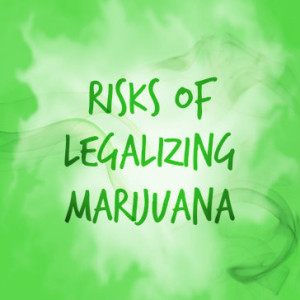 One of the primary cons of marijuana legalization is the mixed message it sends to users and potential users, especially teens. Proponents of marijuana legalization speak of health benefits or cite it as a treatment for chronic pain or for the relief of symptoms associated with chronic illnesses such as cancer, multiple sclerosis and even AIDS. This language takes marijuana out of the realm of “illicit drug” and into the category of “alternative medicine.” If not seen as a substance that promotes health, it will, at least be seen as harmless. Unfortunately marijuana is not harmless, nor is it akin to medicine.
One of the primary cons of marijuana legalization is the mixed message it sends to users and potential users, especially teens. Proponents of marijuana legalization speak of health benefits or cite it as a treatment for chronic pain or for the relief of symptoms associated with chronic illnesses such as cancer, multiple sclerosis and even AIDS. This language takes marijuana out of the realm of “illicit drug” and into the category of “alternative medicine.” If not seen as a substance that promotes health, it will, at least be seen as harmless. Unfortunately marijuana is not harmless, nor is it akin to medicine.
Though marijuana has been legalized in some states for medical use, that does not mean it has been approved by the FDA as a treatment for any sort of medical condition. Nor should it be linked with other non-FDA approved treatments and therapies such as herbal remedies, alternative medicines or vitamins. Regardless of its legal status, marijuana is a drug and it carries with it health risks and consequences. And voting to legalize it actually undermines the authority of the FDA, putting the task of approving drugs and medical treatments into the hands of voters and legislators.
High Risk For Dependence And Health Consequences
Questionable health benefits notwithstanding, people who use marijuana for medical or recreational purposes are building a relationship with a substance that carries a high risk of dependence and addiction. Using marijuana “medically” does not mean that one is exempt from short-term memory loss, that cognitive function is not impaired, that lung tissue is not damaged or that it may not become a gateway drug to more potent and dangerous substances.
Risks Outweigh Suggested “Benefits”
Those who oppose legalization continue to argue that any suggested benefits of marijuana use are far overshadowed by the risks and dangers. Anti-legalization doctors and scientists demonstrate that there are no measurable health benefits of marijuana use. The scientific research does not support the claims and adequate, reliable research has not been conducted. The conditions for which medical marijuana may be useful are broad and vague. Opponents also note that the legal, non-marijuana therapies currently on the market are more effective in treating the conditions for which pot is suggested
The cons of legalizing marijuana are many. Though marijuana may have some suggested (though not scientifically proven) health benefits, it is important to remember that those benefits come with risk as well. Legalization of marijuana not only sends the wrong message to young people about what is medicine and what isn’t, what is healthy and acceptable for use and what isn’t, it also may open the door to increased legalization of pot for recreational use. This in turn may lead to the demand for more hardcore illicit drugs, not to mention an increase in the national addiction epidemic.
Learn More About Drug Rehab Addiction News And Laws
Stimulants are drugs that increase your metabolism, heart rate and blood pressure. They make you feel alert, keep you awake, can help you focus, and may cause you to lose your appetite and lose weight. Among drugs that are abused, the amphetamine class of stimulants is both popular and dangerous. In terms of methamphetamine vs. amphetamine, it can be difficult to distinguish between the two, yet there are important differences.
Amphetamine and methamphetamine are prescriptions that help many people, but which also have a high potential for abuse. Another member of this class of drugs, methcathinone, has no clinical use, but has been discovered by abusers and is growing in popularity. It is important to learn about these common, but dangerous stimulants, especially if you are the parent of teens.
Amphetamine vs. Methamphetamine
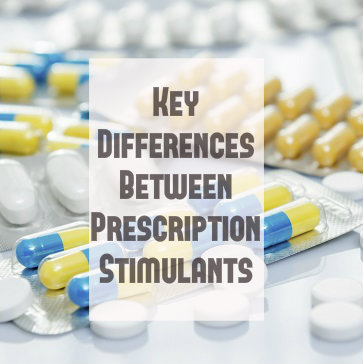 Amphetamine is a stimulant drug from which all other members of its group are derived. It is the base drug. As a stimulant, amphetamine acts on the central nervous system. It is most often prescribed for children with ADHD. It helps them to focus. Amphetamine is commonly abused by high school and college students as a study aid. It produces wakefulness and focus, which makes it a desirable tool for studying long hours. The risks, however, are great. Amphetamine causes side effects like nausea, headaches, shaking, insomnia, nervousness and more. It is also highly addictive.
Amphetamine is a stimulant drug from which all other members of its group are derived. It is the base drug. As a stimulant, amphetamine acts on the central nervous system. It is most often prescribed for children with ADHD. It helps them to focus. Amphetamine is commonly abused by high school and college students as a study aid. It produces wakefulness and focus, which makes it a desirable tool for studying long hours. The risks, however, are great. Amphetamine causes side effects like nausea, headaches, shaking, insomnia, nervousness and more. It is also highly addictive.
Methamphetamine is similar to amphetamine. Like amphetamine, it is a stimulant that increases wakefulness and alertness. It is less often prescribed for ADHD and in rare cases can be used to treat obese patients. Methamphetamine is prescribed less often than amphetamine because it is more harmful. It can cause lasting damage in the brain with long-term use and is extremely addictive. Because prescriptions for methamphetamine are scarcer, users often get it from amateur meth labs. Abusers of meth use it to get a high rather than to study.
Methcathinone vs. Methamphetamine
Another member of the amphetamine stimulant class of drugs, methcathinone, is similar to methamphetamine. Unlike meth, however, it has no clinical use. It is a Schedule I drug in the U.S. because it is dangerous and addictive. It is not prescribed to treat any medical conditions. Methcathinone is chemically very similar to methamphetamine and is also a stimulant.
Like both amphetamine and methamphetamine, methcathinone suppresses the appetite, increases wakefulness, heart rate and energy, and produces alertness in the user. The sense of euphoria that also comes with taking the drug is the main reason people abuse it. The feeling is described as being less intense than that imparted by methamphetamine. As with methamphetamine, methcathinone causes long-term damage and is highly addictive.
All members of the stimulant class of drugs have potential for abuse, but amphetamine, methamphetamine, and increasingly methcathinone are among the most common. Teens and young adults are often drawn to these drugs for either the high, the potential for a study aid, or both. Adults and parents should be aware of these drugs and the harm that they can cause.
If You Or Someone You Love Is Struggling With Stimulant Abuse, Call Us Now – Help Is Available 24/7
18 Jul 2014
How To Stop Drinking When You Become Pregnant
Every mother-to-be wants the best for her future child, but when you struggle with drinking that means making a big sacrifice. If you drink a lot and have wondered if you have a drinking problem, and suddenly find out you’re pregnant, it’s like a big and important wake-up call. Now is your chance to get sober and do what is best for you and your baby.
Have I Already Hurt My Baby With Drinking?
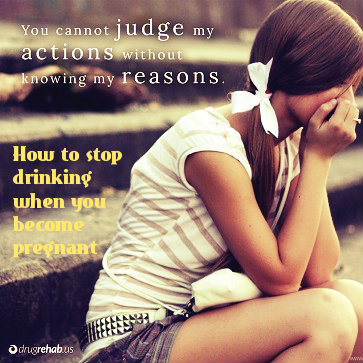 Many women who get pregnant without having planned for it worry that they have already caused harm by drinking during their early stages of pregnancy. While it is best to not be drinking at all, the most important thing is to stop drinking as soon as you find out. Not all experts agree on just how much alcohol can cause harm to a fetus, but the first few weeks are a time of rapid development. That being said, many women do go on to give birth to perfectly healthy babies.
Many women who get pregnant without having planned for it worry that they have already caused harm by drinking during their early stages of pregnancy. While it is best to not be drinking at all, the most important thing is to stop drinking as soon as you find out. Not all experts agree on just how much alcohol can cause harm to a fetus, but the first few weeks are a time of rapid development. That being said, many women do go on to give birth to perfectly healthy babies.
The real issue is what can happen if you continue to drink throughout your pregnancy. Any amount of alcohol can impact your child and cause fetal alcohol spectrum disorders. These are preventable illnesses that produce a variety of symptoms in a child whose mother drank during pregnancy. Possible symptoms include unusual facial features, low body weight and small size, poor coordination, hyperactivity, learning disabilities, delays in developing speech and language skills, sleep difficulties, vision and hearing problems, and even organ damage.
How Do I Stop Drinking?
There is no point in feeling guilty about having already consumed alcohol while pregnant. Now is the time to cut yourself off completely, no matter how difficult that may be. Of course if you feel you can’t do it, no matter the risk to your child, turn to addiction professionals to help you get sober and monitor both your health and that of your baby.
If, on the other hand, your problem is not that severe, there are some steps you can take to make giving up alcohol a little easier. First, associate and socialize more with people who don’t drink or in situations where there will be no alcohol. Going to parties where everyone is drinking will make quitting much more difficult.
Learn how to make fantastic virgin drinks. Cocktails are huge right now and there is no reason you can’t join in on the trend. There are plenty of resources available to help you find recipes for delicious mocktails. Or, get creative and come up with your own recipes.
If drinking has been a habit that helps you relax and unwind at the end of the day, replace it with a healthier way to de-stress. Exercise is a wonderful way to relax, and also for you and your baby to stay healthy. Just be sure that you keep your doctor in the loop in case certain types of exercise should be avoided. You can also relax by engaging in a hobby, reading a good book, taking a nice long bath or by meditating.
Giving up alcohol for the health and safety of your baby may be the most important thing you ever do. It won’t be easy if you have made a habit of drinking too much or regularly, but it is doable. Just remember that if you really struggle to get on the wagon, professionals are available to help you.
Learn More – Why Do Women Continue To Drink During Pregnancy?
If You Need Help With An Addiction, Call Us Now – We Are Available For You 24/7
16 Jul 2014
Is Addiction A Brain Disease?
The nature of addiction has been debated for decades. The prevailing current view is that addiction is not a choice; it’s a chronic illness that affects the brain. Some, however, even addiction experts, reject this categorization and insist that addiction is a rational choice. There are dangers on both sides. Defining addiction as a disease may give addicts a sense of hopelessness and lack of control. Blaming addicts for their choices, on the other hand, results in stigma and shame.
When coping with a loved one who is addicted, it is important to understand what the research really tells us. While there is still room for debate, the evidence is overwhelming that addicts have a chronic brain disease. By better understanding how drugs or alcohol have changed a loved one’s brain, you may be able to find the patience and compassion to help him.
Addiction Defined
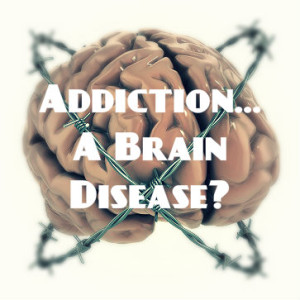 Modern research has uncovered some of the secrets of addiction. Those at the forefront of addiction expertise and treatment follow evidence-based practices and learn from medical research. With that in mind, the American Society of Addiction Medicine defines addiction as “a primary, chronic disease of brain reward, motivation, memory, and related circuitry.” In other words, to the best knowledge of those who study and treat addiction, addiction is a disease of the brain.
Modern research has uncovered some of the secrets of addiction. Those at the forefront of addiction expertise and treatment follow evidence-based practices and learn from medical research. With that in mind, the American Society of Addiction Medicine defines addiction as “a primary, chronic disease of brain reward, motivation, memory, and related circuitry.” In other words, to the best knowledge of those who study and treat addiction, addiction is a disease of the brain.
How Drugs Affect The Brain
If addiction is a disease of the brain, what exactly does that mean? It is easy to comprehend what a disease is. For instance, asthma is a disease that affects the respiratory system. Inflamed airways make it difficult to breathe. The right medications, avoiding triggers, and following a doctor’s orders all help asthma sufferers stay well and breathe with less difficulty.
Addiction is a disease that affects the brain. The initial use of drugs is a choice, but once in the bloodstream, drugs get into the brain and start to cause changes that impact mood and behavior. The first thing that happens when someone takes a drug is that cells in the brain release large quantities of a chemical called dopamine, which gives the user a sense of euphoria. That great feeling encourages subsequent and repeated drug use in order to recapture the euphoria.
Drugs also impact parts of the brain related to memory and self-control. Memories of taking a drug can make the user start to crave it again and again. The way in which drugs affect our control mechanisms in the brain mean that a user’s ability to resist cravings becomes severely impaired. These brain changes caused by drugs and alcohol clearly demonstrate that addiction is far more complex than making choices.
How Is Addiction Chronic?
As you cope with helping a loved one struggling to get into recovery, it is also important to understand the chronic nature of the disease. This means that there is no cure for the disease, only treatments. Like any other chronic illness, addiction is life-long. Relapses are not uncommon, but can be minimized by keeping up with treatments and establishing and maintaining a strong support system. In fact, research shows that rates of relapse among addicts are similar to those among people with other chronic diseases, like asthma.
Watching a loved one’s struggle with addiction is heartbreaking and frustrating. From the outside looking in, it can be difficult to understand why he doesn’t just stop using drugs. The more you understand his disease, that it impacts his brain and is chronic, the better able you will be to help him and to remain positive and patient with him as he gets treatment.
Read Our Other Posts For Friends And Family Of Addicts
The device called an e-cigarette is a big story in the news these days. They appeared on the market several years ago as a way to help smokers quit and now they are reaping in billions of dollars in sales every year. Controversies surround these devices; not least of which is the harm they may pose to children and teens. So what is an e-cigarette and what do you need to know about them to protect your children? Get the facts and talk to your kids about e-cigarettes before they experiment on their own.
What Are E-Cigarettes?
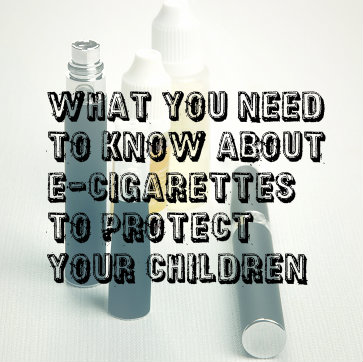 An e-cigarette is a device that uses a battery to warm a small vial of nicotine dissolved in liquid. The user inhales the vapor to get the nicotine and exhales water vapor. The idea is that a smoker can use an e-cigarette to get a nicotine fix without inhaling the thousands of harmful compounds that are in cigarette smoke and which cause health problems. Studies as to whether they really help people quit are ongoing. There is no definitive answer yet, but what seems to be clear is that e-cigarettes are useful for some smokers and not for others.
An e-cigarette is a device that uses a battery to warm a small vial of nicotine dissolved in liquid. The user inhales the vapor to get the nicotine and exhales water vapor. The idea is that a smoker can use an e-cigarette to get a nicotine fix without inhaling the thousands of harmful compounds that are in cigarette smoke and which cause health problems. Studies as to whether they really help people quit are ongoing. There is no definitive answer yet, but what seems to be clear is that e-cigarettes are useful for some smokers and not for others.
Are E-Cigarettes Harmful To Kids?
Although they don’t produce smoke, e-cigarettes are still devices that deliver a hit of a one of the most addictive substances, nicotine. Because e-cigarettes are marketed as a healthier alternative to smoking, most young people inaccurately assume there are no risks in using one. Nicotine is highly addictive and any child or teen using an e-cigarette is at significant risk of becoming addicted to it. There is also the risk of poisoning. Nicotine is poisonous in high doses and the liquid in the e-cigarette can be toxic.
Nicotine is a drug that affects the nervous system, the brain, and the heart. Someone abusing nicotine will experience an elevation in blood pressure and heart rate. High doses can cause a dangerous heart arrhythmia. In rare cases, and with large doses, this arrhythmia can be fatal. With their smaller bodies, kids are more vulnerable to these risks than adults are.
How Do I Protect My Kids from E-Cigarettes?
When it comes to any kind of drug, knowledge is power. Once you understand the risks and dangers associated with e-cigarettes, you can share them with your kids. You should have regular conversations with your kids about substance abuse, alcohol, peer pressure, smoking and other issues they face as children and as teens. Bring e-cigarettes into the conversation and make sure they understand that these devices are not safe.
Also make sure your kids understand how e-cigarette makers are specifically trying to target them to get them hooked on nicotine. The manufacturers make these devices with an array of flavors that mimic fruit, candy, cookies, and specific products that children love, even Girl Scout cookies. The companies making e-cigarettes have no qualms about targeting kids and teens in this way and they even sponsor events, like rock concerts, that attract young people.
Despite the risks, teens and even children are trying e-cigarettes. According to surveys, one in ten high school students has already tried e-cigarettes. As a parent, it is your job to stay on top of the changing landscape of harms and risks posed to your children and to protect them. By learning about e-cigarettes you can help your kids understand all the reasons they should avoid these devices. The risks of nicotine use are too great and we still don’t understand the full danger of e-cigarettes. Keep yourself and your children knowledgeable and you’ll empower them to make better choices.
Learn More About How E-Cigarettes Are Secretly Being Used To Hide Drug Use


